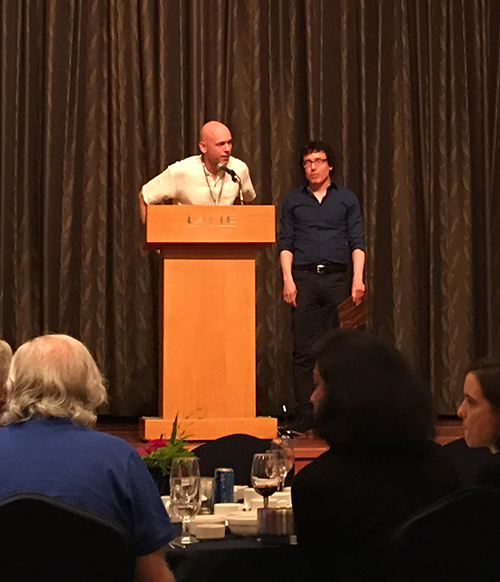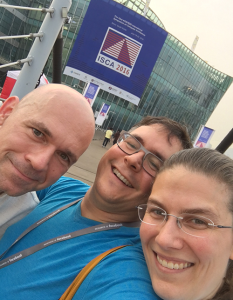Professor Ras Bodik, a member of UW CSE’s Programming Languages & Software Engineering (PLSE) group, collected the 2016 ACM SIGARCH and IEEE-CS TCCA ISCA Influential Paper Award (a “test of time” award) at the International Symposium on Computing Architecture being held this week in Seoul, South Korea. Bodik and his co-authors, former University of Wisconsin-Madison Ph.D. students Brian Fields and Shai Rubin, received the award for their 2001 ISCA paper, Focusing Processor Policies via Critical-Path Prediction, in which they introduced a simple yet effective hardware predictor of instruction criticality to optimize performance.
The predictor employs a dependence-graph model of the microarchitectural critical path that incorporates both data and machine-specific dependences to identify execution bottlenecks, and uses a token-passing algorithm to compute the critical path without having to actually build the dependence graph. By focusing processor policies on critical instructions, the predictor enables the prioritization of critical instructions for scarce resources, and suppressed speculation on non-critical instructions to reduce the risk of misspeculations.
Bodik and his colleagues demonstrated their predictor was capable of supporting fine-grain optimizations and producing significant improvements in performance—as high as 21%, and 10% on average, in the case of cluster instruction scheduling and steering.
Read the winning paper here.
Congratulations, Ras!
Ras is at ISCA with CSE professor Luis Ceze and affiliate faculty member Karin Strauss of Microsoft Research. In addition to Ras’ big win, they are cheering on their colleague from the Molecular Information Systems Lab, CSE affiliate faculty member Doug Carmean of Microsoft Research, who delivered a keynote talk titled Quantum and Cryo and DNA oh my! Sights Along the New Yellow Brick Road.



